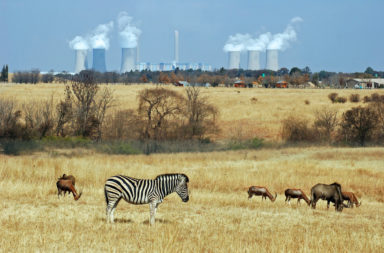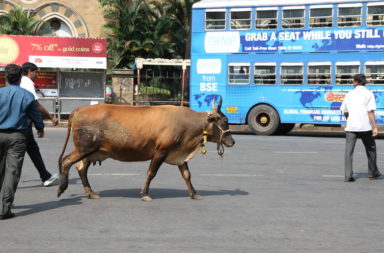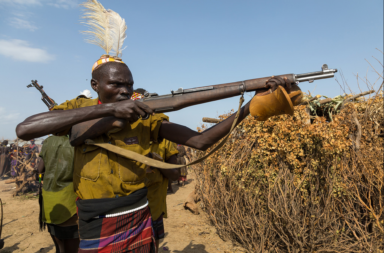The United Nations Security Council is like your ignorant and slightly racist uncle: born in a different time, and has not adapted to the multi-cultural world of today. But leaders of the up-and -coming nations want to change that.
-
UN Security council has 5 permanent members: the United States, Great Britain, France, Russia and China
-
India represents 1/6th of the global population, yet has no permanent voice
-
African countries are treated like “underdogs” according to Zimbabwe President Robert Mugabe
-
India has begun security and defense pacts with African nations
In July 2016, Indian PM Narendra Modi visited Africa.
The most significant part of his tour was his meeting with South African President Jacob Zuma – as they both aim to reform the UN Security Council.
In fact, the meeting was so power-packed, that it seems like India and Africa are soon going to have much stronger trade and diplomatic ties. Here’s what Vikas Swarup tweeted, who is official spokesperson of the Ministry of External Affairs in India:
PM concludes: And, as you march towards your destiny, you will find in India a trusted and reliable partner pic.twitter.com/QtdljxL4RF
— Vikas Swarup (@MEAIndia) 11 July 2016
In late 2015, India had called upon Africa to support its endeavour to join the UNSC
During the India-Africa Forum Summit, Indian PM Narendra Modi said that India and Africa must in “one voice” push UN Security Council (UNSC) reforms.
He argued, “These institutions have served us well, but unless they adjust to the changing world, they risk becoming irrelevant. We cannot say what will replace them in an uncertain future. But we might have a more fragmented world that is less capable of dealing with the challenges of our era. That is why India advocates reforms in global institutions. This is a world of free nations and awakened aspirations. Our institutions cannot be representative of our world if they do not give voice to Africa, with more than a quarter of UN members, or the world’s largest democracy with one-sixth of humanity. That is why India and Africa must speak in one voice for reforms of the United Nations, including its Security Council.”
Additionally, Zimbabwe President Robert Mugabe shared his opinion about how African nations are treated like “underdogs” by permanent members of the UNSC, which signified that India and Africa were on the same page regarding the membership issue.
This was strongly supported by at least 10 other African leaders, who voiced the need for UNSC expansion. However, at that time, there was no concrete support committed to India’s UNSC membership endeavour. Now with Modi’s visit to Africa, things have begun taking shape. It is clear that India will join hands with Africa to campaign effectively for UNSC membership. Here are some tweets about the India- Africa partnership when PM Modi visited Africa:
PM: Our countries have marched on the path of development.We are imp BRICS economies. People at home & world at large have great expect’ns
— Vikas Swarup (@MEAIndia) 8 July 2016
On Modi’s discussion with Mozambique President Filipe Nyusi:
PM: Aware of the emerging challenges in the maritime domain, President and I have agreed to strengthen our defence & security relationship.
— Vikas Swarup (@MEAIndia) 7 July 2016
Pakistan raises questions about India’s UNSC membership bid
On the other hand, Pakistan questions India’s ambition to win membership of the UNSC. In December 2014, Member of the European Parliament Afzal Khan claimed that India’s ‘good gesture shown by Indian Prime Minister Narendra Modi towards Pakistan during his visits to different countries was a part of his efforts to get permanent membership to United Nations Security Council (UNSC) for his country.’ He went on to say that the “International community is quite concerned about basic human rights. Moreover, how can a country become a permanent member of the UNSC when it has not implemented the UN resolution on the issue of Kashmir. India has to respect the UN resolution if it wants to continue claiming that it is the largest democracy.”
However, India seems to have found a supportive partner in Africa. To know if India actually manages to get into the UN Security Council, we will have to wait and watch!




